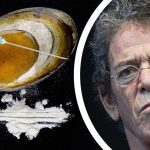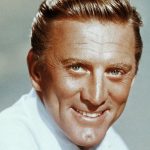No one in the history of show business has ever had a career like Bob Hope. Whether it’s the length of his career, the quality, the originality or the variety. Bob Hope is truly a one of a kind legend, who we will not see the likes of again. He was a legend amongst legends.
But as sad as it sounds, the greater the life, the harder the fall. Bob Hope’s final days were difficult purely because of the greatness of the man. Join us as we take a look at his final decade. How he deteriorated and the impact he left on those who knew him best.
An unprecedented career
Bob Hope was born on May 29th, 1903. He was a British-American stand-up comedian, vaudevillian, actor, singer, dancer, athlete and author. He was born in the Eltham district of southeast London. Arrived in the United States with his family at the age of four, and grew up near Cleveland, Ohio.
His astonishing career spanned nearly eighty years, with Hope appearing in more than seventy short and feature films. Fifty four of those feature films had Hope as the star. In addition to hosting the Academy Awards show nineteen times, which is more than any other host, Hope appeared in many stage productions and television roles.
If that’s not enough, he also wrote fourteen books. The song Thanks for the Memory was his signature tune. Bob Hope even had a crack at being an athlete, with a brief career as a boxer in the late 1910s. He began his career in show business in the early 1920s. And initially as a comedian and dancer on the vaudeville circuit, before acting on Broadway.
Bob Hope in 1934
Hope began appearing on radio and in films starting in 1934. He praised for his comedic timing, in which he specialized in one-liners and the rapid-fire delivery of jokes that were often self-deprecating. He was a huge component in establishing modern American stand-up comedy.
Between 1941 and 1991, Hope made fifty seven tours for the United Service Organizations, entertaining active duty American military personnel around the world. He also appeared in numerous television specials for NBC during his career and was one of the first users of cue cards. Hope retired from public life in 1997.
A sudden deterioration
It was as the eighties drew to a close, that the British-American stand-up comedian, Bob Hope, began to show his age. Those who had worked with him were shocked, having come to believe that he would somehow defy the ravages of age forever. What was most shocking was how quickly he went from someone who had appeared to be fifteen years younger to a certified octogenarian.
The mental acuity that allowed him most of the control over his life and career was beginning to fail him. This was most obvious, once he began to forget the lines of his act that he’d been performing for decades. He would try to conceal his confusion from the audience by whispering to his longtime pianist and music arranger, Geoff Clarkson, to confirm where he was in the act.
Even though Clarkson helped him to stay on track, Hope’s performances became abbreviated versions of themselves. He would even take questions from the audience to fill the gap. This didn’t help matters as he struggled to hear what they were asking him. This became an issue when the promoters who had paid his standard fee of between $50,000 and $80,000, began demanding refunds. This is how Hope’s days of performing live, which was his favorite part of show business, came to an abrupt and unwelcome end.
If you’re enjoying this video, remember to click that like button and subscribe to our channel for more.
Hope’s sight began to fail him
In 1963, a carelessly held prop pistol on a movie set caused corneal blood clots which threatened the sight in his left eye. Hope received laser treatment, but he would compensate for his weak eye by relying on the good one. Almost thirty years of this led the right eye to being overworked and becoming cloudy, as if he was in a smoky room. With his eyesight and his hearing beginning to fail simultaneously, Hope would often seem disoriented and confused.
He was no longer able to hear the tracks of songs. And which led to musical director Bob Alberti kneeling below the camera lens to help him maintain tempo. Hope stumbled over lines, slurred his words. And would come to a dead stop mid-sentence when the cue cards drifted out of focus. What had long been a pleasure for Hope quickly became a horror. He was deteriorating before peoples eyes and it was heartbreaking for everyone to see.
With his own deterioration, also came the deterioration of his productions. In 1990, when taping a sketch set in Sherwood Forest, Hope was cast as the Sheriff of Nottingham opposite Tom Arnold’s Robin Hood and Roseanne Barr’s Maid Marian. At the moment for Hope’s big entrance, he yelled to the producer nearby, “Why am I carrying this bow?” He reminded of the archery tournament that concluded the sketch. Hope joked about needing more rehearsal time.
This led to Barbara Bush offering to read him his lines when he couldn’t see the cue cards in a production. And an interview with Bob Costas being unairable due to Hope’s inability to hear the questions asked by Costa.
Coming to an end
Hope’s final special as the main host aired on May 17th, 1992. All involved knew that it would be his last, due to his physical discomfort. NBC honored him in 1993 with a three-hour special entitled Bob Hope, The First Ninety Years hosted by Johnny Carson. Hope’s contribution was passive, simply applauding the acts that were there to pay homage to him. These included George Burns, Milton Berle, Angela Lansbury, Whoopi Goldberg, Chevy Chase and Walter Cronkite.
All involved hoped that the special would be Bob Hope’s farewell to a remarkable career on television. Sadly, this wasn’t the case. In 1993 and 1994, NBC aired several specials, with clips from past shows. Hope unable to walk without assistance, and could only shown sitting or on the arm of a guest.
Without Hope’s contributions to the productions, they were lacklustre to say the least and difficult to watch for those that were close to Hope.
With his fifty-year reign as NBC’s longest-running radio and television star, Hope allowed to continue appearing on the screen. The network feared the backlash if he no-longer aired, while public relations man Ward Grant was working overtime denying rumors that Hope was at death’s door
On July 30th, 1996, the tabloid magazine Star released a photograph of a frail Bob Hope on its cover. The headline read, “Bob Hope Tragedy. He’s Gone Blind, Deaf and Needs Your Prayers.” A lifelong friend of Hope’s spoke out that everyone close to him feels he may be running out of time.
Bob Hope’s Final Television
Hope’s final television special, Laughing With the Presidents, was finally billed as his farewell to NBC. The network took out full-page ads to promote the show which aired on November 23rd, 1996. People questioned its purpose, as while aging is a privilege, Hope’s abilities as a performer had truly diminished and the special would unfortunately be a mortifying show to watch. This was accentuated further by the attendance of Bill and Hillary Clinton, George and Barbara Bush and Gerald and Betty Ford.
In the summer of 1998, Hope attended a party to celebrate the seventy-fifth birthday of the inventor of cue cards for television, Barney McNulty. Many of Barney’s friends and colleagues attended, including Angela Lansbury, with whom he had worked on Murder, She Wrote. The event would turn out to be the last time most people would ever see Bob Hope.
At ninety-five years of age, Hope now needed assistance twenty-four-seven. Within an hour and a half, Hope was waving feebly out the window of a van as it drove away. Barney ran alongside, thanking him for coming.
Honors pour in for Hope
Meanwhile, honors continued to pour in for Hope. The Air Force named one of their new C-17 bombers The Spirit of Bob Hope and the Navy christened a ship the USNS Bob Hope. In October of 1997, President Bill Clinton signed a bill naming him an honorary veteran, this was the first in the nation’s history.
Bob Hope passed away on July 27th, 2003, at an impressive one hundred years of age. A memorial High Mass was celebrated at St. Charles Borromeo. The church is a few blocks from his house that he had helped build. As well as this, a memorial tribute was staged at the Academy of Television Arts & Sciences in North Hollywood. It was filled with remembrances from Hope’s friends and professional colleagues.
These included Larry King, Angela Lansbury, Johnny Grant, Katherine Crosby, Michael Feinstein, Sid Caesar, Red Buttons, Tom Selleck, Phyllis Diller, Jack Jones, Jim Lipton, Ward Grant, Lee Iococca, Brooke Shields, Mort Lachman, Jane Russell, Connie Stevens, Tony Orlando, Loni Anderson, Rick Ludwin, Barbara Eden, Rhonda Fleming, Carole Lawrence, Ed McMahon, Janice Page, Mickey Rooney and Linda Hope. The memorial lasted over three hours.
Bob Hope Last Words
His last words were, in true Bob Hope fashion, witty and humorous. Towards his final moments, when his wife Dolores asked him where he wanted to be buried, the always hilarious Bob Hope quipped, “Surprise me.”
With everything that Bob Hope did and achieved, what will you always remember him for? His acting, his standup comedy or simply his quick wit?
Let us know in the comments section below and don’t forget to subscribe to Facts Verse for more. Click the bell icon to stay updated on all our latest content.


